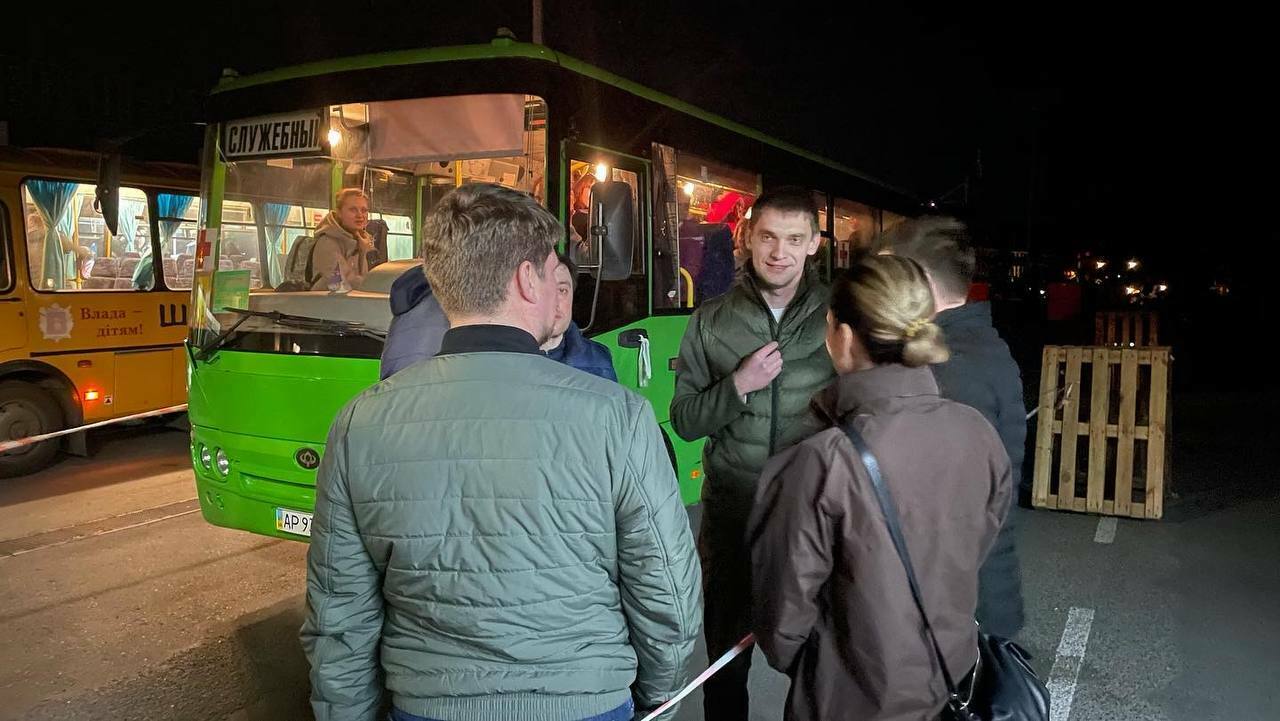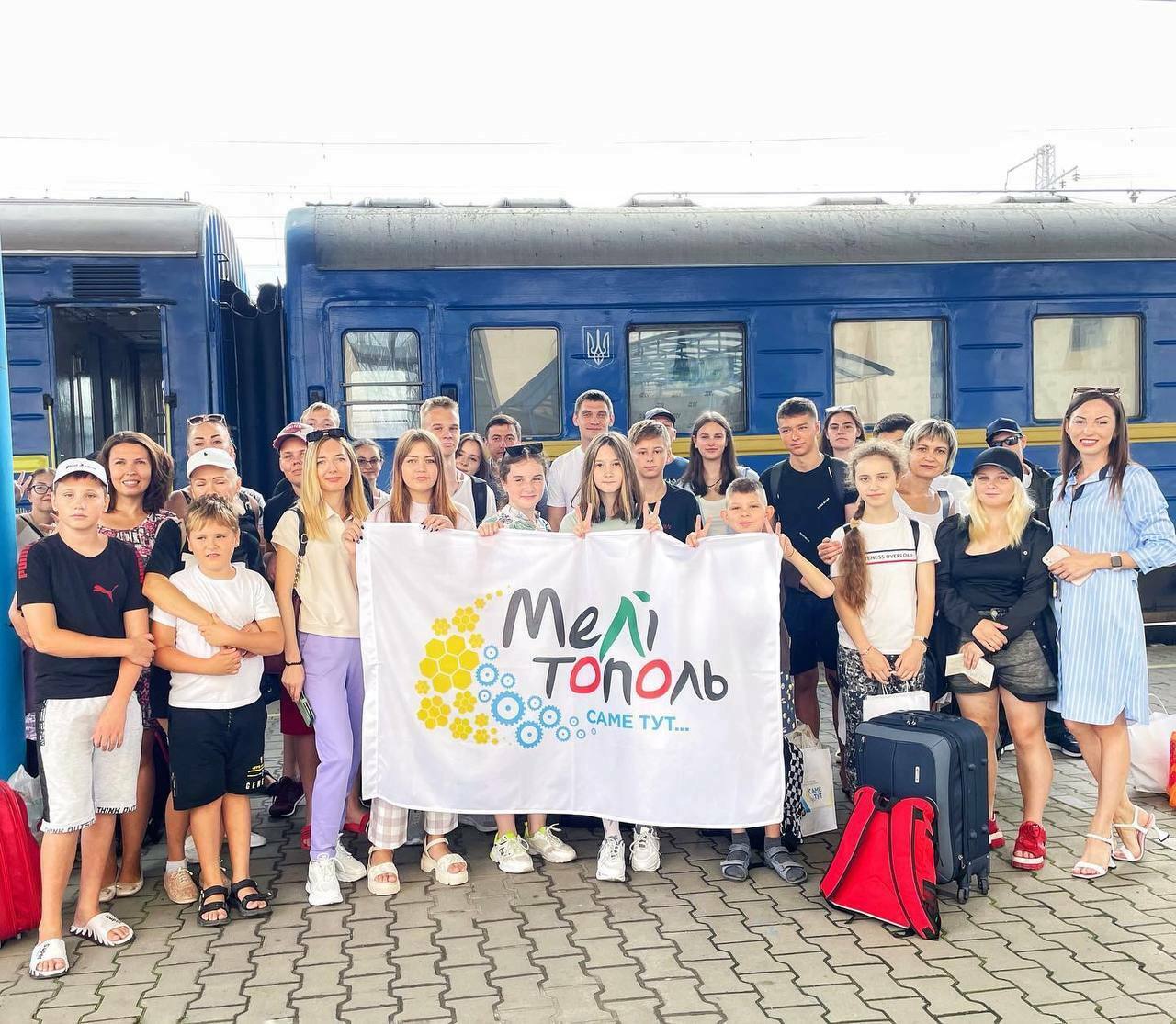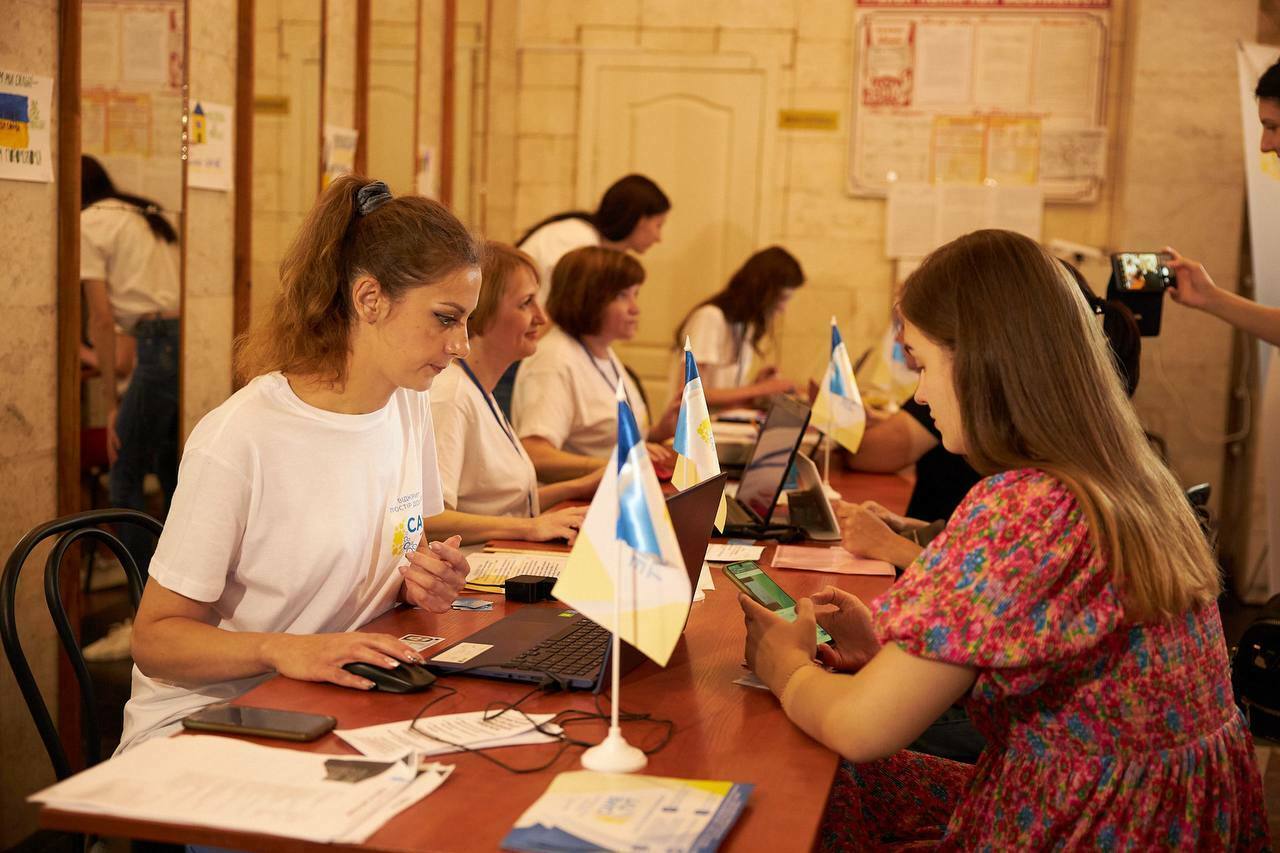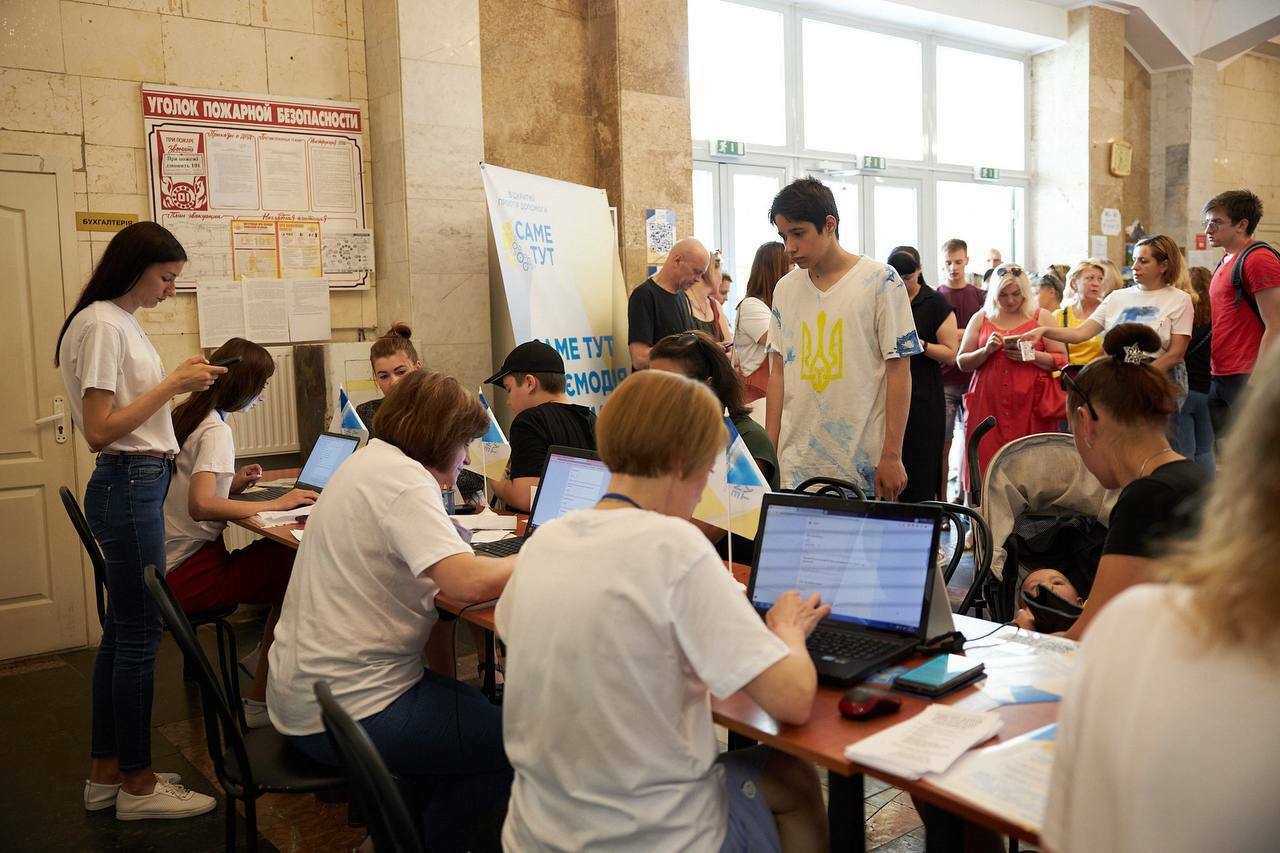“The role of local self-government in organising resistance is paramount.” Interview with Ivan Fedorov
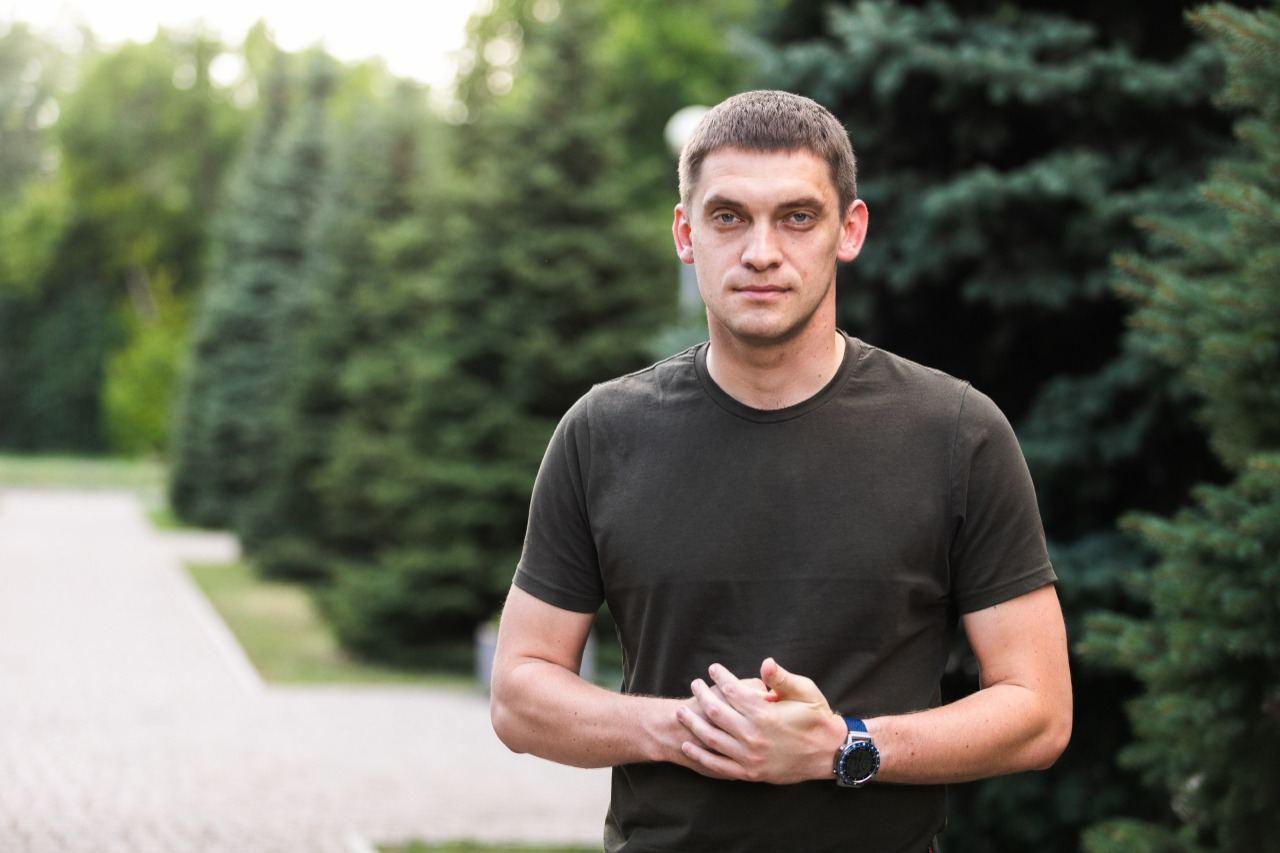
The mayor of Melitopol talks about the life of the occupied city, panicking Russians and assistance to those who managed to escape from them
Text by: Dmytro Syniak
From the first days of the war, Ivan Fedorov became a symbol of resistance to local self-government. At the beginning of spring, thousands of residents of occupied Melitopol staged rallies, loudly chanting their only demand, “Ma-yor! Ma-yor!” On 11 March 2022, 33-year-old Fedorov was abducted by the Russian military and for six days, they demanded he either agree to cooperate or transfer his powers to someone appointed by them. The Prosecutor General’s Offices of the self-proclaimed “Donetsk People’s Republic” and “Luhansk People’s Republic” initiated criminal cases against the Mayor for “facilitating terrorism”. But on the 16th of March, he was finally released from captivity, having been exchanged for nine conscript soldiers of the Russian army. Decentralization started the interview with Mr Fedorov with the topic of the Ukrainian resistance in Melitopol.
Freezing city. How the occupiers “rule” Melitopol
According to you, the occupiers turned Melitopol into a military logistics hub. The city’s geography lends itself to it. However, it also has a lot of pro-Ukrainian people, and no movement of Russians will go unnoticed. Right?
Indeed. All movements within Melitopol are monitored both by guerrilla groups and by the intelligence of the Armed Forces of Ukraine. The decision to turn Melitopol into a logistics hub shows that the Russians will hold on to it until the end. And this will primarily pose a threat to the people who stayed there.
How many residents stayed in the city?
I believe that no more than a third, that is, about 50,000 people.
What do these people live off?
Before the war, the city was fully integrated into the Ukrainian economy. Therefore, we can say that practically all trade and economic ties have been severed. There are almost no jobs; people live off their savings, certain payments from Ukraine (for example, pensions that the state credits to banking cards), as well as humanitarian aid provided by the Russians. However, it is becoming scarcer. While they used to give away about 700-1000 packages of humanitarian aid per day, now this figure is no more than 250 packages. Moreover, people have to queue for these packages from one o’clock in the morning. If you’re lucky, you can get something in the morning: some food, basic necessities... Rather pitiful haul, but we have to understand that when people have nothing to live off, they’ll take anything. They must somehow survive until the liberation of the city.
Did the damage to the Crimean Bridge affect Melitopol’s food supplies? After all, food is brought there from Crimea...
No, food is still being supplied from Crimea. however, after the damage to the bridge, the prices skyrocketed. Because Crimea itself started experiencing problems with food. Still, Melitopol is long way from starving.
What about freezing? You reported to the media that the occupiers cut off the city’s boiler rooms from the heat supply network.
The problem is that the main gas pipeline was damaged near Orikhiv. Therefore, the entire temporarily occupied territory of the Zaporizhzhia region is cut off the gas supply. Tokmak, Vasylivka, Enerhodar, Melitopol. It has been cut off for three months, and it is unclear when it will be back. Although Russians promised to extend a pipe to Melitopol from somewhere, nothing is being done at the moment. And since 95% of the heating network works on natural gas, this network is out of operation now. The heating season has not started and it is unknown when it will start.
Is it true that the city’s hospitals actually work for the wounded occupiers and ordinary residents have almost no access to them?
This is not the case. The Melitopol City Hospital is indeed overwhelmed with a huge number of patients, but most of them are civilians. Russians treat their wounded in smaller towns such as Tokmak, Vasylivka and Vesele. Hospitals there work for the occupiers, and residents of the occupied south have only the Melitopol hospital available to them. That is why they come here even from the Kherson region. And there are almost no wounded Russians in Melitopol hospitals.
You published a long list of collaborators, which even included kindergarten employees. Where is the line for collaborationism?
it is very simple. There was an order from the head of the education department not to open educational institutions under occupation and not to work in them. If people violated this order, thereby endangering the safety of children, they are automatically put on the list of collaborators. The orders of the government and relevant ministries must be observed. We only add names to the list of collaborators after checking the sources of information. This list is guaranteed to be expanded, and these people will eventually be held accountable for their actions and treason.
A few months ago, the Main Directorate of Intelligence reported that about 100 Russian soldiers were killed on the streets of Melitopol by guerrilla groups. This testifies to the strong popular resistance in the city. Has this number changed by now?
This question should be addressed to the Main Directorate of Intelligence. I can only say that the guerrilla resistance movement in Melitopol is very powerful indeed. An extremely large number of people are waiting for the liberation of the city, which is why the threat to the lives of the Rashists remains great. No invader can be comfortable in Melitopol, and all of them will face the same fate, mutilation and death. As for the guerrilla fighters, these are brave and important units that boldly thwart the occupiers’ plans on our land. Melitopol was very patriotic before the war and remains so now. And this sentiment will only grow every day, reaching its peak during the liberation of Melitopol by the Armed Forces of Ukraine.
Forced mobilisation
Is there any information about the moods among the occupiers themselves?
They are panicking and do not understand what they are doing in Ukraine, what are the ultimate goals of the Russian command and what awaits their entire Rashist horde tomorrow. And the Armed Forces of Ukraine fuel this panic every day with their well-aimed strikes. I hope the time when this entire horde flees from our land to their Mordor will come soon.
Is it possible for the civilians to evacuate from Melitopol now?
It is still possible. As of this morning, we have information that it is possible to leave. And we once again call on our residents to leave the temporarily occupied territories, especially since after the introduction of martial law by Russia in the occupied regions, no one can predict the effects on the ordinary residents.
Do you mean forced mobilisation?
This is the primary concern. Including various forms of military service, the organisation of “volunteer” battalions, territorial defence units, etc. It is better to defend our Motherland than to die for the occupier. Especially since the lives of Ukrainians are worth nothing to the Russians. We can already say that the occupiers have assembled a squad of about 3,000 residents of Melitopol and its surroundings from local residents. We also know that very few people joined this squad voluntarily.
You stated that those with Russian passports were taken first...
Yes, this category was the first to be mobilised. It turned out that the fools who were the first in line for the coveted Russian passports were the first to be sent to slaughter. You can’t deny some sort of higher justice here. However, Russians also mobilised a lot of ordinary Ukrainians who never wanted to serve them. And this clearly affects the combat capabilities of their units.
What can you say about gauleiters, their deputies, etc.? Halyna Danylchenko, who held the position of the main Russian appointee in Melitopol, quit in May. Where is she now?
She still works there. I bet she would eagerly quit now, but no one would let her go. Other employees of the collaborationist city government are usually just ambitious losers who were unable to get certain positions under normal conditions because their professional qualities were very poor. Some of them have a criminal record. Either way, these people were not trusted and were left aside. Now, the Rashist army turned the tide for them. But you can imagine the way they have been ruling and they will do in the future. These people are currently shaking in their boots. They are very afraid of the return of the Ukrainian government. They do not understand what will happen to them tomorrow and are very much waiting for the stabilisation of the front line. But this is definitely not what will happen.
Is there information about the looting of municipal property by the Russians?
They are looting en masse. As for the most recent news, they stole almost all of our ambulances — and we had quite good ones, Renault, Peugeot, etc. — and brought some UAZ rustbuckets. While our ambulances are now somewhere in Oryol or Kursk. The municipal machinery is still there, but the Russians will most likely take or destroy it when they retreat. They always do that.
Evacuees
What can be done for those who left the Melitopol community?
We are trying to do whatever we can, from organising the work of the Humanitarian Centre to helping our residents with evacuation. It has been extremely difficult work so far, but we understand that we must help people at all costs. Almost the entire team of the Melitopol City Council is currently working in Zaporizhzhia, and I can proudly say that there were practically no collaborators among them. And there are none among heads of departments and departments, deputy mayors, etc.
What does the Humanitarian Centre do?
Provision of various assistance, including financial, consulting and legal. The Humanitarian Centre offers a hotline that our residents can contact with any problems. It also used to collect aid for the occupied territories, but for 2 months now we have been unable to deliver any goods there. The Russians do not let anyone through. We are constantly, 24/7, in touch with our residents — both those who are under occupation and those who have left. We help some to get to the European Union and organise accommodation and food for others together with our partners. In short, we do our best to make our residents feel safe. Our work today is not the standard work of the city council. Rather, it is daily work aimed, on the one hand, at the fastest possible victory of Ukraine and, on the other hand, at providing comprehensive assistance to the people of Melitopol.
Humanitarian centre of the Melitopol municipality
How do Melitopol schools work? How many of them were preserved?
We preserved all 23 schools in the city, and they are now working remotely. More than 14,000 of our students continue their online education in these schools. Many children and teachers are now in Zaporizhzhia.
Does the Melitopol City Council take part in the exchange of prisoners, including civilians?
Yes, of course. We collect data from families and loved ones and later transfer them to the relevant agencies. In total, at least 500 civilian residents of the Melitopol municipality are now in Russian captivity.
You have now become a media personality well-known to every Ukrainian. Did it somehow affect the role of Melitopol in the defence of Ukraine?
I believe that all of us, Ukrainians, regardless of any media attention or similar things, should be united by one goal, to free our lands from the Russians as soon as possible. And I mean not only residents of the part of Ukraine that is under the control of the Ukrainian government, but also people on the occupied territories. They are populated not only by separatists and collaborators; there are also many true patriots there. I am ready to do anything to liberate our city and our residents from Russian terror. That’s why I do a lot of interviews. Media attention as such does not interest me at all.
How significant is the role of local self-government in organising resistance in the occupied territories?
It is paramount. Any movement must be organised by someone. As we can see with Melitopol, the local authorities’ efforts in this regard are very successful. The local government which enjoys the trust of the people can be a very important link between the patriotic residents of the occupied territories and the Ukrainian security forces. Together we can defeat the enemy.
Tags:
war stories war report war stories special project
Область:
Запорізька областьГромади:
Мелітопольська територіальна громадаSource:
Пресцентр ініціативи "Децентралізація"
11 December 2024
Синергетичний підхід: як працює підтримка ветеранів у Калуській громаді
Синергетичний підхід: як працює підтримка...
Як працює механізм підтримки ветеранів війни та членів їхніх сімей на рівні громади, що можна вважати успішними...
11 December 2024
Chornomorsk reboot veteran policy
Chornomorsk reboot veteran policy
After returning from the battlefield to the home, veterans face various challenges: rehabilitation, employment, and...
11 December 2024
17 грудня - тренінг «Відновлення втраченої...
17 грудня 2024 року (вівторок), о 10:30 розпочнеться тренінг на тему: «Відновлення втраченої інформації та документів...
10 December 2024
Ветеранський кемпінг та безпека пішоходів: учасники конкурсу Громада на всі 100
Ветеранський кемпінг та безпека пішоходів:...
10 листопада завершилося голосування та вибір 40 фіналістів серед територіальних громад, які подалися на конкурс...
